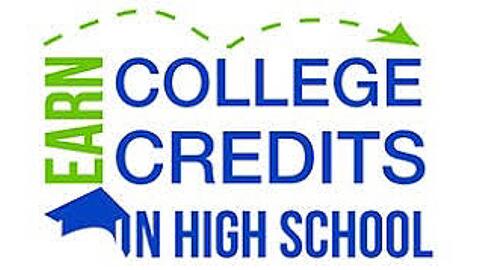By: Richard L. Smith
The New Jersey Dual Enrollment Study Commission, established through legislation signed by Governor Phil Murphy, has released its report calling for expanded access to dual enrollment programs that allow high school students to earn college credit while still in high school.
The report acknowledges the importance of expanding access to these programs, which research has shown make students more likely to graduate high school, less likely to need remedial math or English upon entering college, more likely to receive a higher grade point average in their first year of college, and more likely to take less time to earn a bachelor's degree.
The Commission was established "to study issues related to the implementation of an expanded dual enrollment program" and to issue a framework for expanding dual enrollment.
With the support of the New Jersey Department of Education (NJDOE) and the Office of the Secretary of Higher Education (OSHE), the Commission worked toward the goal of improving efforts to increase the number of students taking part in dual enrollment programs and the number of schools offering such programs, which allow students in high school the opportunity to simultaneously earn college credits so they can readily pursue a higher-education degree or attain industry-valued credentials.
The Commission recommends that New Jersey implement an innovative pilot program to facilitate the expansion of dual enrollment opportunities, particularly for low-income students.
The pilot would provide models of high-quality programs that can serve as templates told help other communities implement effective dual enrollment policies.
"Serving on the Dual Enrollment Commission was an honor, as the dedication and passion for expanding college access and affordability was palpable among its members," said Dr. Angelica Allen-McMillan, Acting Commissioner of Education.

"To effectively compete in a global economy, it is imperative for New Jersey high school students to have more opportunities to access higher education during high school.
The Commission's recommendations provide tangible steps for New Jersey to invest in and expand dual enrollment options."
"Dual enrollment not only provides high school students with the opportunity to earn college credit, but it also helps students gain the exposure and confidence they need to be successful in whichever postsecondary pathway they choose to pursue," said Dr. Brian K. Bridges, Secretary of Higher Education.
"By identifying common goals around the expansion of dual enrollment, the Commission's report provides a promising framework to ensure New Jersey high school students and their families have the opportunity to benefit from these transformational programs."
In New Jersey, 20.3 percent of 11th and 12th graders were enrolled in at least one dual enrollment course, often offered at a reduced cost.
Thiincreasedse from the 2017-2018 school year, when dual-enrollment participation was 17.3 percent.
However, participation varies widely across student demographics. In New Jersey, 19.9 percent of white students in grades 9-12 participated in dual enrollment in 2020-2021, while 8.2 percent of African Americas and 9.8 percent of Hispanic students were dually enrolled.
English Learners and migrant students saw the lowest dual-enrollment participation rates, with 3.1 percent and 3.3. percent enrolled, respectively.
The dual-enrollment participation figures do not include other avenues for high schoolers to earn college credit, such as through Advanced Placement courses, the International Baccalaureate program, or "Option II" programs that allow for locally approved individualized student learning opportunities.
The Commission's report describes a multi-pronged approach to improve access and participation in dual enrollment, particularly among underrepresented student groups. Recommendations include:
- Create a three-year pilot program that would lead to a catalog of best practices for school districts' higher education institutions to use when creating or expanding local programs.
- Allow for program flexibility by not requiring a singular, statewide instructional model or type of program to be implemented in high schools. This recommendation recognizes the varied sizes, structures, schedules, locations, and labor markets of school districts in New Jersey.
- Increase state-level support so NJDOE and OSHE can evaluate policies and regulations regarding dual enrollment.
- Clarify terms in state regulations and guidance relating to dual enrollment and early college data.
- Create a statewide database to evaluate dual enrollment programs annually.
- Develop a toolkit and technical assistance to help school districts implement and expand dual enrollment.
To support immediate action toward the final goal, the NJDOE, and OSHE are today releasing website resources, including a step-by-step toolkit, and providing technical assistance for high schools and colleges looking to expand their dual enrollment offerings.
"The Commission built upon the work of previous task forces, such as the On-ramps to College Working Group, which was created following the release of New Jersey's State Higher Education Plan and the frameworks set out by the College Affordability Study Commission," said Commission Co-Chairs Dr. Mark McCormick, President of Middlesex College, and Dr. Michael Vinella, Principal of East Brunswick High School.
"We were proud to collaborate to develop practical recommendations that will lead to greater opportunities for high school students across New Jersey."


